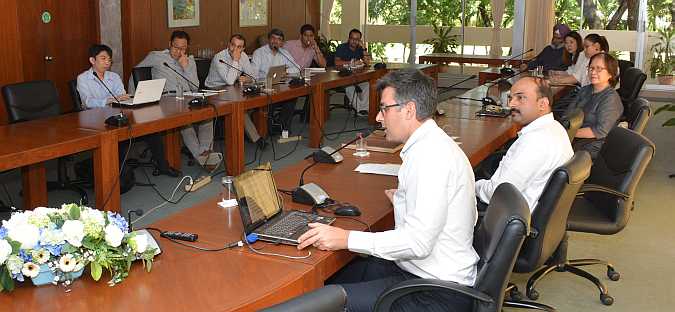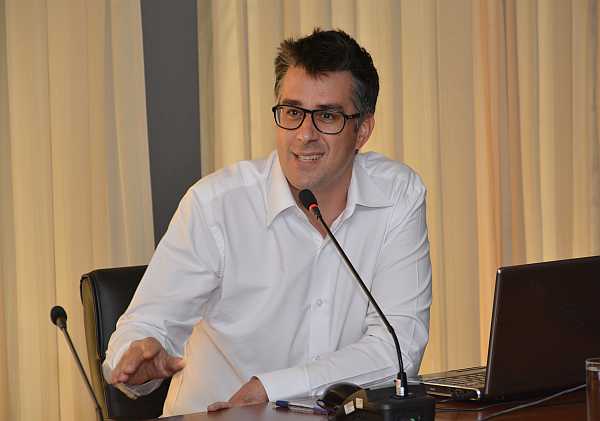Speaking on IP strategies for universities, Franck remarked that 80
per cent of IP is about strategy and it clearly overrides legal issues.
He highlighted the dilemma of researchers who want to publish their
research results vis-a-vis getting a patent for their work. Since
publication puts research in the public domain, this often dampens the
chances of their work being patented once a research paper has been
published. In such cases, a sound IP strategy is required which can
adequately measure the benefits of each move.
Franck, who is former President of the Franco-Thai Chamber of Commerce
(FTCC), and has also taught at AIT, also offered other options
available for IP protection. These include contracts, non-disclosure
agreements, employment agreements, licensing and partnership
agreements, he added. He also spoke of new developments such as sound
trademarks and the impact of 3D printing.
Dr. Orakanoke Phanraksa, Manager, Intellectual Property Policy
Group,Technology Management Center, National Science and Technology
Development Agency (NSTDA), highlighted the structure of the technology
licensing office at her agency. This includes three teams working on IP
Management, IP Business and IP Policy. Chalalai Sutton, Licensing
Consultant, NSTDA, spoke about licensing practice at NSTDA.
The speakers were welcomed by AIT’s Vice President for Research, Prof.
Kanchana Kanchanasut, who stressed the need for universities and
research organizations to focus on commercial markets so that they can
make a bigger impact.


